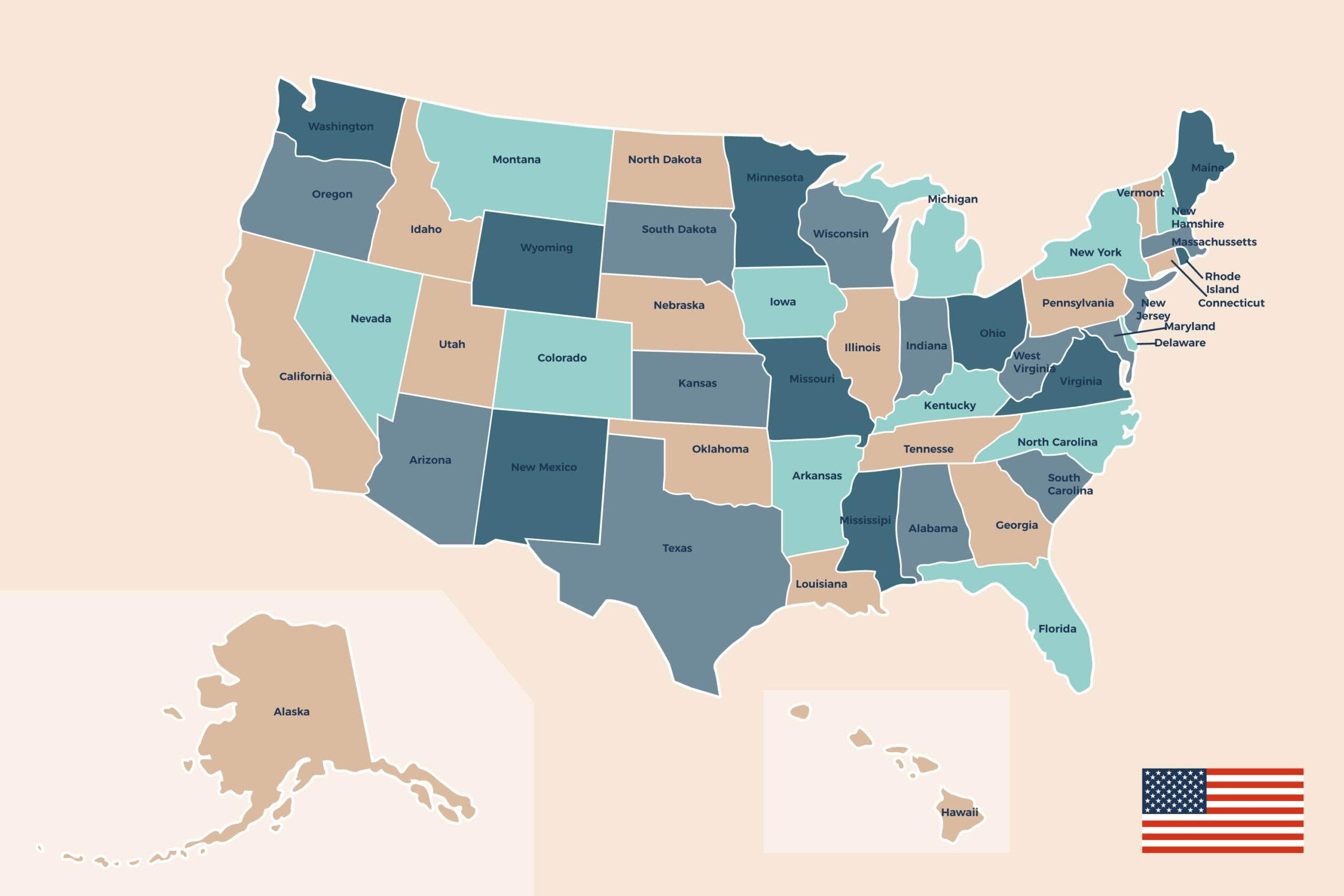Family is the basic unit of a healthy society. In a family, even if one partner earns more than the other, both own the assets equally. Hence, setting standards for the ownership of income and assets within a family is essential. That’s what community property does. It establishes a framework for marriage, wealth management, and even divorce.
The blog highlights the concept of community property state with examples and community property rights.
What is defined as community property?
Community property or marital property is any property earned or acquired by one or either spouse after marriage. The assets included in community property are not separate or acquired after legal separation. What is separate property? A separate property is any property owned by either spouse before marriage.
In simple words, your spouse’s property is also owned by you. The community property law applies to nine states in the US, namely, Arizona, California, Idaho, Louisiana, Nevada, New Mexico, Texas, Washington, and Wisconsin. Further, a divorce proceeding in community property states will divide all the assets 50:50 unless both parties agree on another arrangement.
What's an example of community property?
The community property example is:
- Personal property: Vehicle, furniture, bank accounts, investment accounts, electronics.
- Real Estate Property: Home, land, rent or profits from the property.
- Debts acquired after marriage
- Retirement savings
Debts are subtracted from the total and later divided among both parties. Further, the law excludes gifts or inheritance acquired by one of the spouses during the marriage.
On the other hand, examples of non marital property are:
- Property owned by the spouse before marriage
- Gifts and inheritance owned by one of the spouses, even during the marriage
- Separate property by a written agreement
- Property acquired by separate property
- Property conveyed by one spouse to another
What is the time rule in community property?
In time rule, the retirement benefits in community property is a ratio. The numerator of the ratio is the length of the individual’s service from the date of marriage to the separation date, and the denominator is the total length of the individual’s service at retirement.
Length of the individual’s service during marriage before separation / Total length of individual’s service = Time
Rule
For example,
An individual was married for ten years and worked with the same employer during the marriage and retired after 20 total years of service from the employer. According to the time rule, the community property interest would be 10/20 or 50%. Moreover, the remaining 50% counts as separate property. Furthermore, 50% of community property is divided equally among the parties.
What are some community property rights?
In community property rights, the assets acquired during the marriage belong to both spouses. In short, both spouses own the property regardless of who earned them.
Community property with right of survivorship
Generally, the right of survivorship is a legal term related to several joint property ownership. Community property with right of survivorship allows one to equally share the assets during the marriage and pass on the assets to the surviving spouse upon the spouse’s death without going through probate. It is a better option to transfer assets in joint ownership.
Difference between community property and community property with right of survivorship
On the other hand, in the right of survivorship, the assets automatically pass to the surviving spouse. The right of survivorship is helpful when one spouse dies, leaving half of the property without any beneficiaries and avoiding the lengthy probate process. Besides, community property IRS laws help determine your income and tax benefits while filing income tax returns.
How does the right of survivorship work with Will?
Right of survivorship is a powerful title. So, if the partners have a right of survivorship and the individual has also inherited half of the house from someone else in the will. Now, who is the owner of the house? Here, the right of survivorship overrides the will. And the surviving spouse inherits half of the house, regardless of the will.
Equitable distribution
In states other than the community property states, equitable distribution applies. Equitable distribution does not mean equality distribution. Instead, here the assets are fairly distributed among the two parties – not equally. The division might be either fifty-fifty, thirty-seventy, sixty-forty, whatever the court decides. If the partners own a house jointly, they are called joint tenants.
Moreover, equitable distribution depends on the following factors:
- Non-marital property
- Duration of the marriage
- Whether you are a Homemaker
- Earning power
- Who earned the property
- Addictions and faults
- Age and health of the parties
Common law property rights
The common law property states that assets acquired by one spouse belong to that spouse. Moreover, common law property rights contrast with community property rights regarding the ownership of assets among spouses. For example, if one partner purchased a house or vehicle and put their name on the asset, it belongs only to them. For the common law to be applicable, the individual should reside in one of the common law states.
Besides ownership of assets, the common law property also applies to wealth management. Especially for high-net-worth individuals, a wealth manager would determine if the ownership of assets is common law or community property. According to the specific system, the manager guides the testator to create will and trust.
Furthermore, the law applies to tangible assets, such as vehicles, houses, and real estate, and intangible assets, such as patents and trademarks.
Whether a state follows a common law or community property system, the ownership of the asset depends on a prenuptial agreement or postnuptial agreement if the couples have created one.
Conclusion
The fundamental purpose of community property rights is to protect spousal rights. Moreover, the law primarily benefits estate planning and wealth management. Both spouses own a share of assets acquired during the marriage in community property. The ownership of the property is state-specific. However, delineating the community property and separate property helps avoid misunderstandings and get through the probate process.
We at Clocr help you to create your Will – the fundamental tool in estate planning. A will helps you systematically pass on your assets to your loved ones. Moreover, Clocr helps you to outline your wishes with ease and in a secure way. Besides, you can secure your digital assets with Clocr’s digital estate service. So, to give your loved ones the peace of mind they deserve– Join Clocr today!

Guardianship Disputes: What Decisions Can The Court Make?
Guardianship Disputes: What Decisions Can The Court Make? A probate court may make a decision to appoint a guardian when an adult becomes incapable or

What is a Directed Trustee?
What is a Directed Trustee? Estate planning is a highly complex process that includes several steps. These steps can be complicated, but a directed trustee

What do you mean by Electronic Will?
What do you mean by Electronic Will? In today’s world, almost every business functioning has an electronic alternative, mainly since the global pandemic has emerged.

